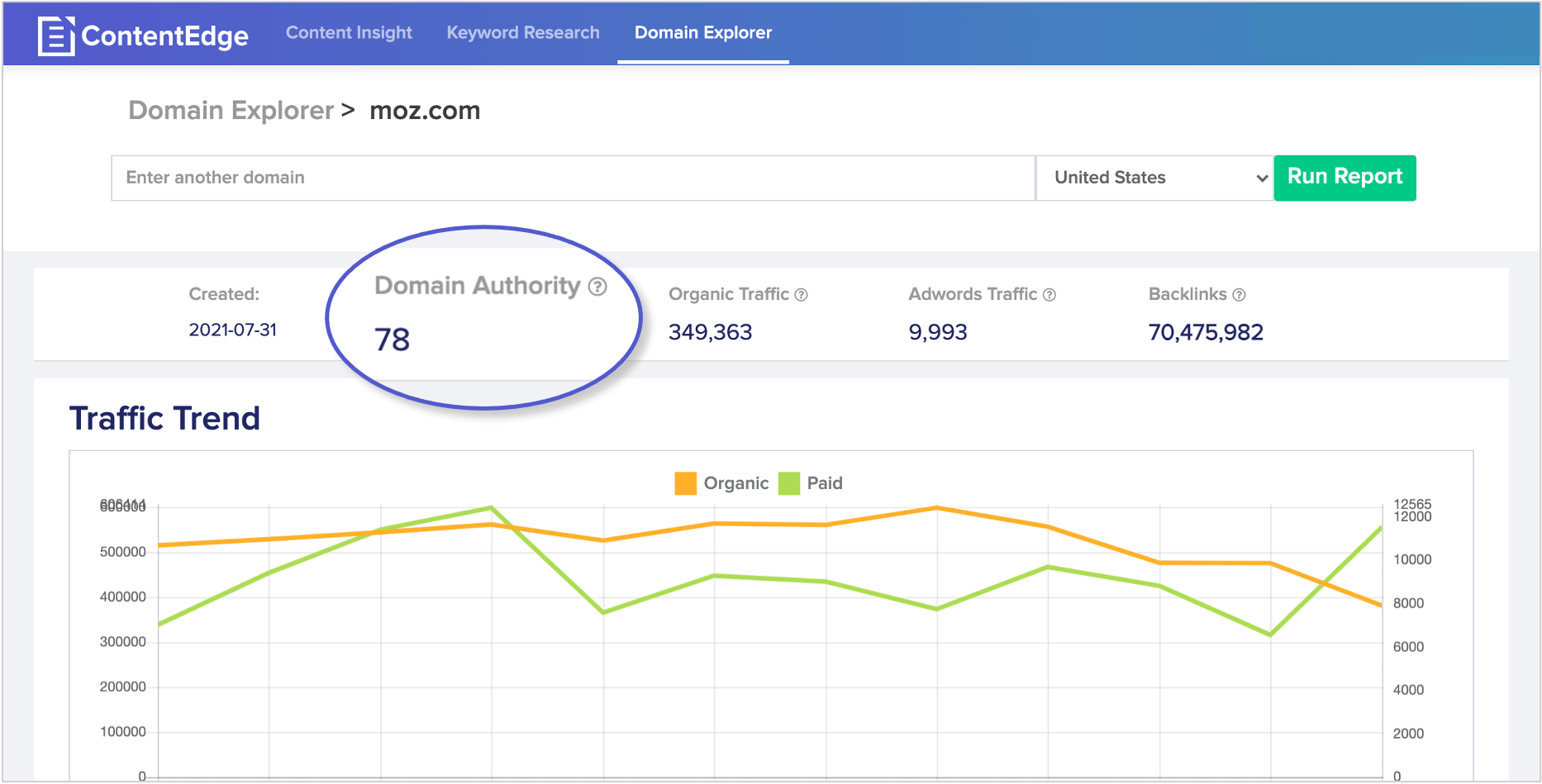Among the many SEO buzzwords flying around these days, E-A-T is probably one you’ve heard of many times before. E-A-T is a guiding principle for site owners, who have the tough task of proving to Google that their content is worth a second look.
Google, after all, has tirelessly combatted low-quality content since its inception. Nearly every major Google algorithm update has been with quality in mind, including E-A-T.
So, what exactly is E-A-T? How does it impact your rankability?
 Note: “human.” Despite Google’s investment in AI, machine learning, and other impressive tech—the company still mobilizes a human team to spot-check sites and search engine results pages (SERPs). The Search Quality Evaluator Guidelines—and E-A-T—give us one of clearest views into how Google assesses and ranks content.
Note: “human.” Despite Google’s investment in AI, machine learning, and other impressive tech—the company still mobilizes a human team to spot-check sites and search engine results pages (SERPs). The Search Quality Evaluator Guidelines—and E-A-T—give us one of clearest views into how Google assesses and ranks content.

 Generally, the higher these numbers, the greater influence your content has in SERPs. But remember, not all backlinks are created equal (this is a common SEO myth). If most of your backlinks are from “toxic,” untrustworthy sites, then they could do more harm than good to your reputation.
Generally, the higher these numbers, the greater influence your content has in SERPs. But remember, not all backlinks are created equal (this is a common SEO myth). If most of your backlinks are from “toxic,” untrustworthy sites, then they could do more harm than good to your reputation.
What does E-A-T stand for?
E-A-T is short for expertise, authoritativeness, and trustworthiness. It was introduced in 2015 as part of Google’s Search Quality Evaluator Guidelines, an extensive document used by human quality raters to analyze websites like yours. Note: “human.” Despite Google’s investment in AI, machine learning, and other impressive tech—the company still mobilizes a human team to spot-check sites and search engine results pages (SERPs). The Search Quality Evaluator Guidelines—and E-A-T—give us one of clearest views into how Google assesses and ranks content.
Note: “human.” Despite Google’s investment in AI, machine learning, and other impressive tech—the company still mobilizes a human team to spot-check sites and search engine results pages (SERPs). The Search Quality Evaluator Guidelines—and E-A-T—give us one of clearest views into how Google assesses and ranks content.
E-A-T and YMYL
While E-A-T has been around for many years, it was thrown into the spotlight in 2018, when Google launched its Medic update. This change to Google’s ranking algorithm sought to better qualify content published by “Your Money or Your Life” (YMYL) sites. We know what you’re thinking: “great, another acronym to remember” (eyeroll). But “YMYL” is a particularly important acronym to note. As explained by Google, YMYL sites are sites that disseminate information that impacts a person’s happiness, wealth, or health. Some examples:- Legal sites
- Finance
- eCommerce
- Medical
- News
- Government
What factors are considered for E-A-T?
Let’s break down the three pillars of E-A-T.- Expertise. This criterion applies to the author of the page in question. Does he or she have the credentials to be advising on the topic at hand? The exact measurement (or standard) of expertise depends on the topic, per Google’s guidelines, but Google generally wants to see that you’ve been credited as an expert by other sources and have consistently posted about the topic before.
- Authority. This criterion applies to the author, website, and the content itself. Search engines will look for certain signals (think: backlinks or media mentions) that verify your leadership in an industry. In other words, they don’t just want to hear you claiming that you’re the best source for XYZ advice or information. You need the support of other unbiased sources that can substantiate your claims.
- Trustworthiness. This criterion applies to the author, website, and the content itself. Google needs to know that people trust your content—that you’re not simply publishing buzzworthy content for attention, but are actually presenting accurate and honest information.
5 tips for improving E-A-T
What can you do to assure Google that you’re a reliable source? How can you make sure that your content checks off all the boxes that Google’s human raters are looking for? Here are a few essential tips.1. Write consistently on a particular topic
Consistency is key in SEO (plus content marketing). It’s not enough to simply publish one knockout piece and expect Google to reward you with stellar rankings. Rather, you need to play the long game and build your domain authority over time. To achieve this, think of a series of related blogs or pages that you can publish. Take a cluster topic approach to your content strategy, utilizing pillar pages and thoughtful interlinks to help web crawlers find (plus understand) your content. At the end of the day, your goal is to answer every important question possible about your topic. In this vein, you should constantly talk with your sales team, customer service team, and other helpful departments. Tune into relevant podcasts. Ask for feedback from your customers. Consult other sources for blog ideas and build content that’s highly requested. . Pro tip: A keyword research tool like ContentEdge can help you to quickly uncover keywords that are related—or frequently searched with—the primary keyword that you have in mind.2. Assign “beats” to writers
In an effort to help your writers become subject matter experts (SMEs), encourage your authors to consistently write about the topics that they have an interest of experience in. Aside from having them create content for your site, have your writers build up their personal brands through external sites. For instance, writers could engage people within their LinkedIn, Twitter, or other social networks. It doesn’t hurt to have them write their own thought leadership pieces, collaborate with other experts, and become a known leader in their respective areas.3. Invest in PR for writers and your company
A strong PR strategy can help to boost both your company’s and writers’ authorities. By speaking at events, working with reporters, or participating in various other campaigns—you can increase your visibility within your industry. Not to mention, each of these efforts offer opportunities to earn backlinks and recognition. You won’t want to underestimate the power of online communities, either. Leverage your social channels and emails to regularly engage your audience. Listen to their feedback and answer any relevant questions. Become a go-to source of information for people in your industry.4. Collaborate with trusted experts and influencers
Influencers and strategic marketing partners offer the clout to put you on the map. With their support, you not only get the chance to engage a large, relevant audience—but Google will also look favorably upon any shoutouts that your company or content earns. Of course, you’ll want to make sure that you build a genuine relationship with your partners. Any collaborations or shoutouts shouldn’t feel forced. Along the same lines, if you’re managing an online community, it’s a good idea to get licensed professionals involved. For instance, 7 Cups—a website that offers online therapy and free support—shows E-A-T, even on community-generated pages. In the example below, you’ll see that they have experts with relevant qualifications moderating the conversation. Here we see Lisa Meighan, who has a bachelor’s degree in psychology and is a professional counselor, weighing in on the conversation.
5. Pay attention to off-page and on-page SEO signals
While many off-page, on-page, and technical SEO factors don’t directly prove E-A-T, they do indirectly impact the impression that your content leaves on readers and Google alike. For instance, if you neglect to build a fast-loading, mobile-friendly site, users are more likely to bounce off your page. Too many bounces or unengaged visitors can signal to Google that your content isn’t viewed favorably by the general public. In another instance, if your content lacks clear headlines or in-depth information, then you could run into issues with trustworthiness. If you want to monitor your progress in demonstrating E-A-T, your domain authority and/or the number of backlinks you earn could offer some insight. Generally, the higher these numbers, the greater influence your content has in SERPs. But remember, not all backlinks are created equal (this is a common SEO myth). If most of your backlinks are from “toxic,” untrustworthy sites, then they could do more harm than good to your reputation.
Generally, the higher these numbers, the greater influence your content has in SERPs. But remember, not all backlinks are created equal (this is a common SEO myth). If most of your backlinks are from “toxic,” untrustworthy sites, then they could do more harm than good to your reputation.
